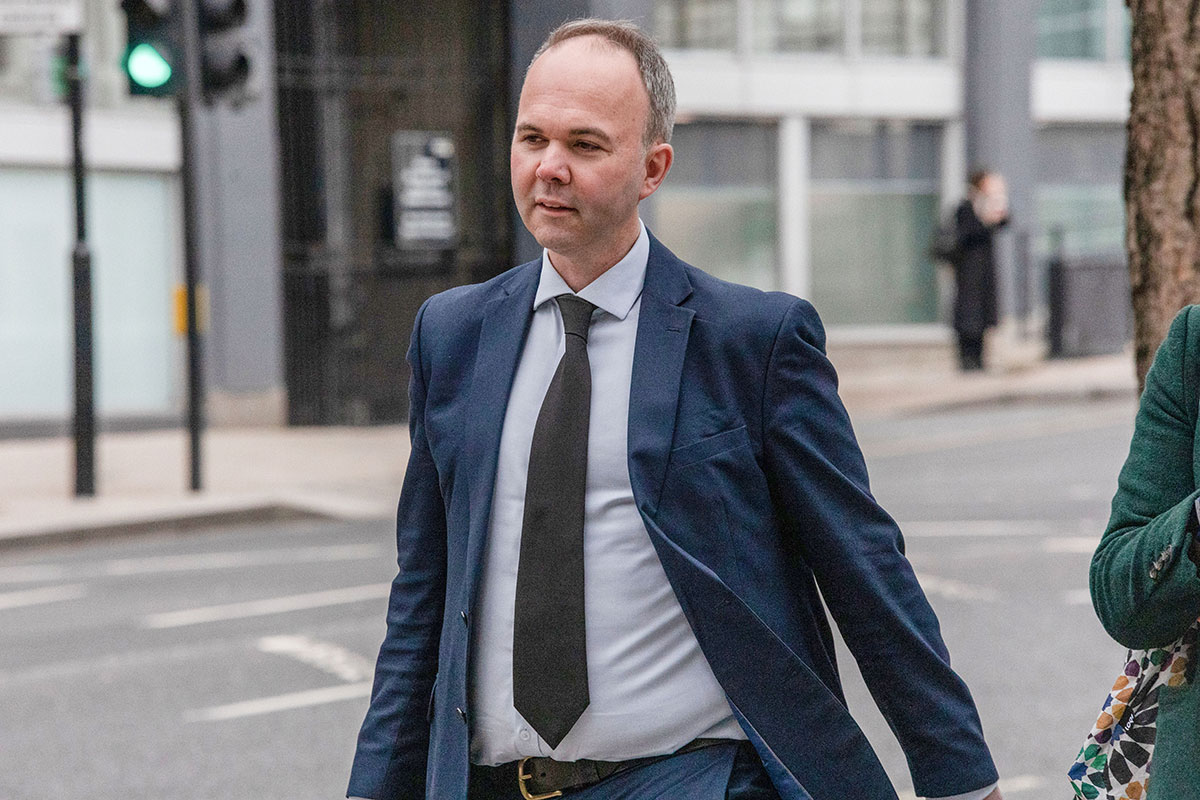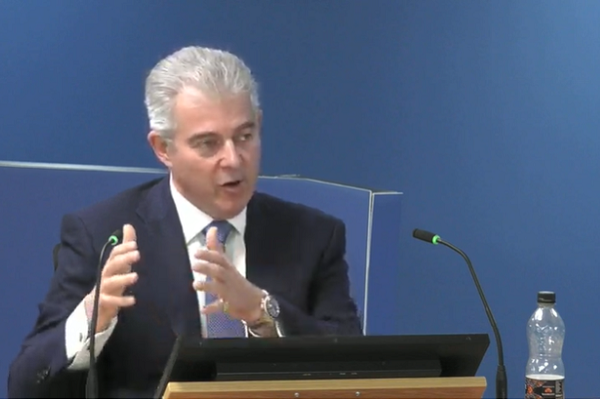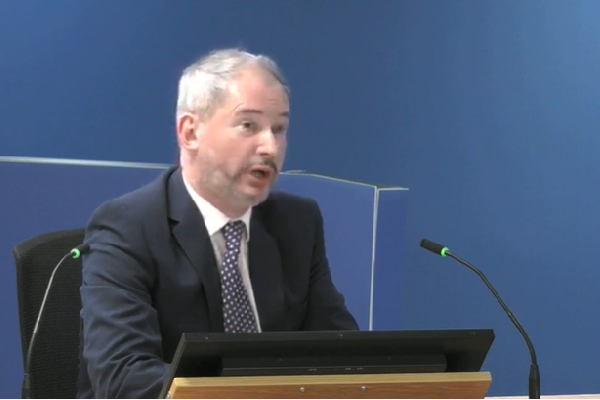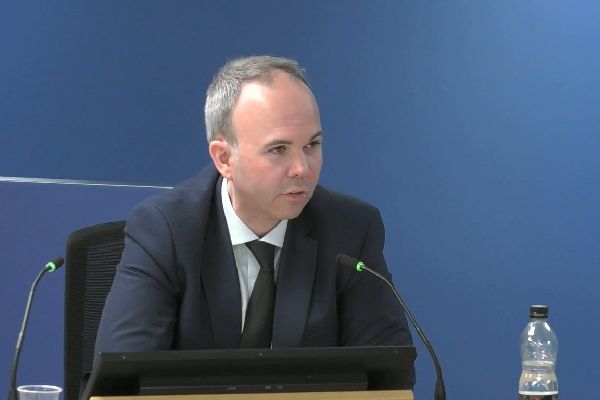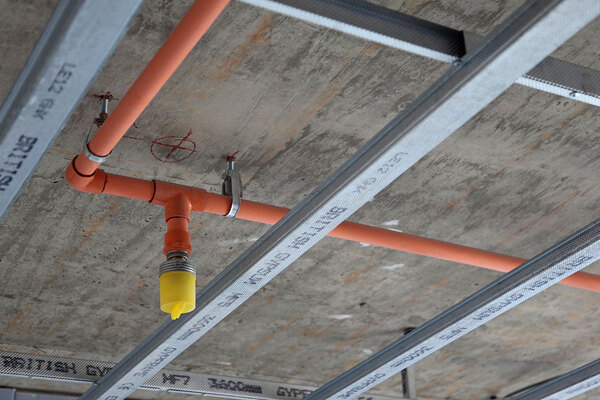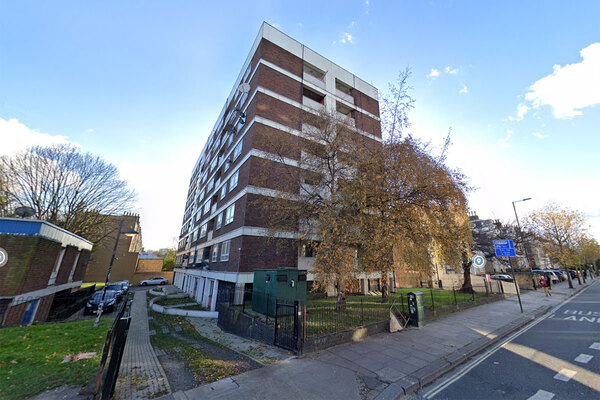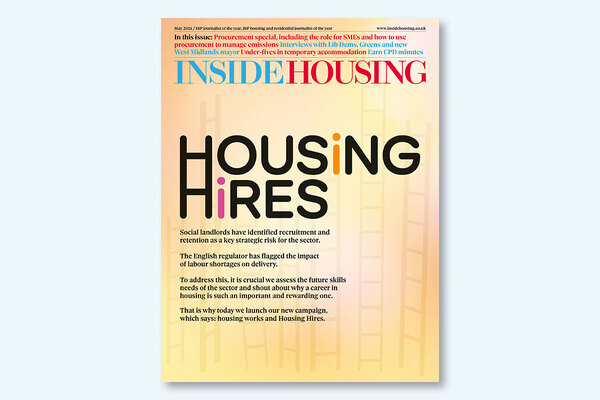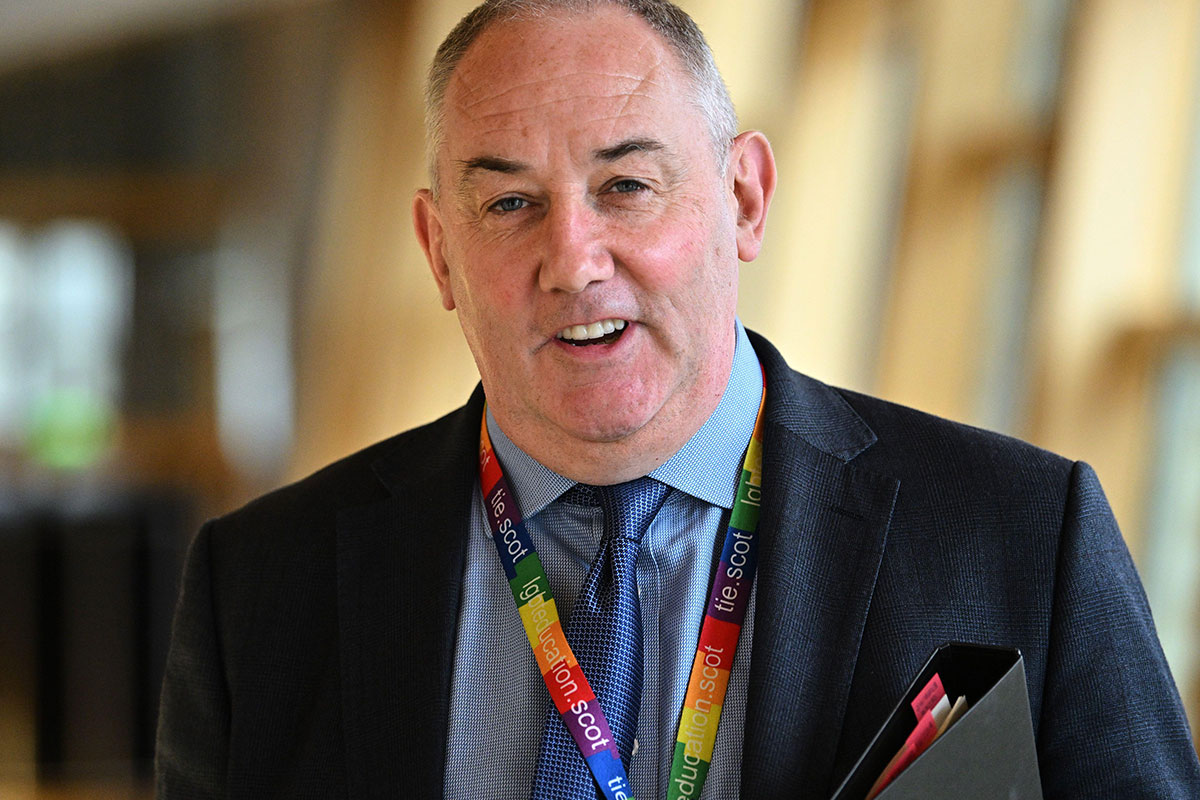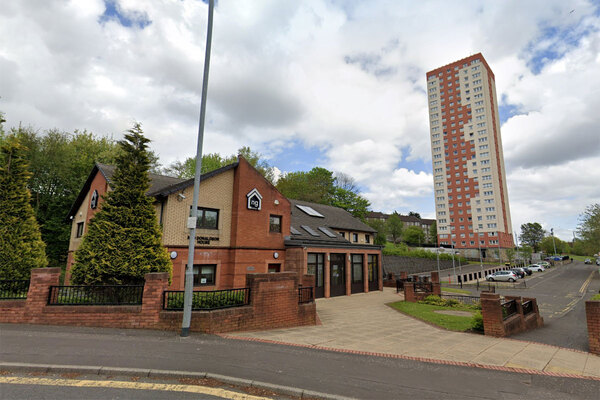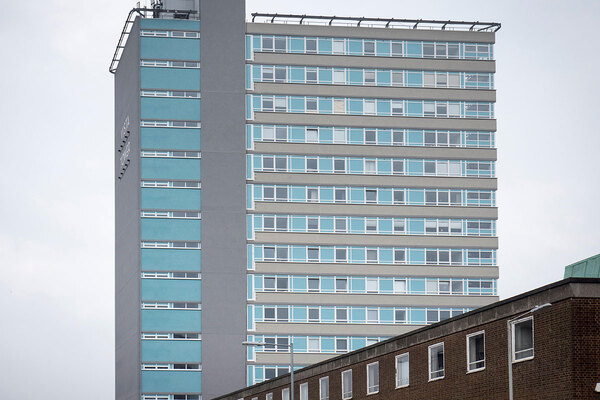Housing supply ‘overshadowed’ fire safety despite multiple warnings before Grenfell, Barwell accepts
Former housing minister Gavin Barwell today accepted that the government’s “housing supply agenda” overshadowed “life critical” fire safety work, despite repeated warnings to his office that rules were in urgent need of review.
Giving evidence today, Mr Barwell, who went on to become chief of staff to Theresa May, also said he was “embarrassed” by delays responding to a series of letters sent by a fire safety group chaired by the late Sir David Amess MP.
Like previous ministers who have appeared before the inquiry, he admitted never having read the recommendations which followed a coroner’s inquest into the fire at Lakanal House in 2009, despite being responsible for implementing them.
He also said long delays which occurred on his watch to the publication of crucial research documents intended to underpin the review of fire safety rules contained in Approved Document B were “absurd” and “totally unacceptable”.
The inquiry also saw that a ‘discussion document’ – required to launch a consultation on the long-awaited review – was repeatedly delayed as Mr Barwell focused on a Housing White Paper, intended to boost housebuilding rates. The document was ultimately not published at the time of the Grenfell Tower fire.
Mr Barwell denied that deregulation was the cause of these delays – saying he was willing to impose restrictions on industry where necessary and that there was a “change of tone” from the prior approach under David Cameron’s leadership.
This conflicts with evidence from civil servants in the building regulations division, who have said regulation was a “dirty word” in the department and the attitude towards it stopped them pushing forward with necessary changes.
“Can you explain to us how we have got two ministers – James Wharton and now you – who are saying [deregulation] wasn’t a particular focus and yet the civil servants at the bottom appear to have been literally crushed… by the weight of these deregulatory policies?” asked Kate Grange QC, counsel to the inquiry.
“I can’t speak for James, but my answer relates to the period I was in the department. If officials are saying from me they were under extreme pressure, I’m at a loss to explain how that could be the case,” replied Mr Barwell. He added that under “the previous government”, “there was a big agenda” relating to deregulation.
Inside Housing has previously revealed that Mr Barwell received a series of letters from an All-Party Parliamentary Group (APPG) on Fire Safety, chaired by Sir David.
He initially declined a meeting with the group in October, before accepting one in March. In the interim, several follow-up letters from the group which warned in clear terms about the need to review regulations went missing within the department.
In one of these letters, the group warned of “frustration” over the delays to the review and urged him to “make an early statement” on its commencement.
Mr Barwell said he rejected the advice of officials, who had advised him in March to decline the meeting again and provided Sir David with his private office phone number to ensure further messages were not missed.
He said he regretted not meeting them sooner.
The group ultimately never met Mr Barwell due to the early 2017 election, which was called shortly after he accepted the meeting.
He was also shown a letter from fire minister Brandon Lewis, sent in November 2015, which referred to the department’s “longstanding commitment” to review the guidance and noted “changes in construction technology in particular increased use of combustible materials”.
The letter said Mr Lewis’ officials had met with industry umbrella group the Fire Sector Federation, which said the issues were “causing concern” in the fire sector.
Ms Grange said the letter was sent following a meeting between senior officials in the then Department for Communities and Local Government and the Home Office in order to obtain a higher priority for the review of the guidance.
Mr Barwell said he was not aware of this and said it was a “slightly dysfunctional, odd” way to go about raising the issue which he was “at a loss to explain”.
A further letter, previously seen by the inquiry, was sent by then commissioner of the London Fire Brigade Dany Cotton in April 2017 – which said the brigade was “deeply concerned” by the range of fire safety issues it was discovering in buildings including “in particular, blocks of flats”.
The letter was never forwarded to Mr Barwell, who by this point was campaigning to retain his seat in a marginal Croydon constituency, which he would ultimately lose.
Mr Barwell said the letter was “distressing”. “Whatever the official advice had been, I would have taken this meeting as a matter of urgency,” he said. “I would have assumed that those problems were not unique to London.”
He said his office were under instructions only to forward “the most urgent correspondence”.
“How can you read this letter and not see it as raising the most important of issues?” asked Ms Grange.
“It’s the only explanation I can offer,” said Mr Barwell.
“It’s not a satisfactory one, is it?” asked Ms Grange.
“No,” replied Mr Barwell.
The inquiry saw that Mr Barwell, who had responsibility for a wide range of policy areas including building regulations, received a briefing on this part of his portfolio from officials in summer 2016, several weeks after he was appointed.
This briefing made no reference to the commitment to the Lakanal House coroner to review Approved Document B, despite the department having told the coroner it would complete by 2016-17.
“Can we agree now that you should have been given at least some information about the Lakanal fire and the coroner’s recommendations?” asked Ms Grange.
“So the straight answer is yes, but I do want to put on record overall I had the highest regard for the officials that I worked with and I don’t want to come here today and just say it’s all the official’s fault,” replied Mr Barwell.
He said the meeting left him with “a completely false situational awareness” about how well the building regulations were functioning.
He said he had been phoned by prime minister Theresa May on taking office and told to focus on resolving the “housing supply crisis”.
He agreed that this “influenced his thoughts on the priorities of the department at the time”, but also said he was not asked about building regulations in parliament or in two interviews he completed with Inside Housing.
“So clearly… the government had a completely false picture about the level of fire safety, but it wasn’t just the government,” he said.
However, as the inquiry later discussed, he was in fact asked about building regulations in parliament in October 2016.
He said that preparation for answering this question was the first time he was told the department had committed to review Approved Document B following the Lakanal House fire.
However, he said he never read the letter the coroner had sent in 2013 or the department’s response.
“Can we agree now that you really ought to have immediately asked to see the coroner’s letter and the letter from the department in response to that so that when you were answering questions in parliament, you had a clear understanding of what the background was?” asked Ms Grange.
Mr Barwell said he “accepted the principle” of her question, but because he should have been more “curious” about the issue, not simply to answer the question in parliament.
As the inquiry has previously heard, Mr Barwell’s office was repeatedly chased by officials to authorise the publication of research documents commissioned in 2012 which would underpin this review.
These documents had been delivered to the department in early 2015, but were ultimately not published until February 2019, more than a year-and-a-half after the Grenfell Tower fire.
Mr Barwell said it was “absurd” and “totally unacceptable that public money was spent on these reports and it took so long to publish them”, but insisted it was not his private office that was responsible for the delay.
Instead, he said it was more likely that the documents were being delayed by the department’s special advisors – one of whom was Carrie Symonds, the current wife of prime minister Boris Johnson.
In order to launch the review, officials were also required to publish a “discussion document” containing details of the proposed changes for a consultation.
The inquiry saw that this document should initially have been published after party conference season in autumn 2016, but was delayed as Mr Barwell focused his efforts on the Housing White Paper, which itself was delayed until February 2017.
The discussion document ultimately did not come to Mr Barwell until March 2017. It still was not published at the time of the Grenfell Tower fire, with the purdah period ahead of the June 2017 general election further delaying its publication.
“Can we agree that in your time as housing minister, no positive steps were taken to advance matters of fire safety?” asked Ms Grange.
“I don’t think that is a fair thing to say. We clearly had worked on the discussion document and we’d made internal progress. The calling of the general election stopped that work coming into the public domain,” he replied. “So I certainly accept that we didn’t make the progress that we should have made, but I think the way you phrased it is unfair.”
The draft discussion document made no reference to the coroner’s recommendations following the Lakanal House fire, and did not address the issue of external fire spread.
It also said the review should be limited to “areas which support simplification or deregulation” or where “a compelling case is made that current requirements need to be amended”.
“Can we agree that the government’s housing supply agenda really dominated your time in the department and overshadowed other core work including to review Approved Document B, some of which was life safety critical?” asked Ms Grange.
“I absolutely accept that with a couple of important caveats,” said Mr Barwell. “One of which is that the department, as it acknowledges in its opening statement, didn’t recognise that this work was life safety critical and therefore I wasn’t told that.
“And secondly, and I want to put this very gently, because it is absolutely right that the inquiry holds the government to a much higher standard than anybody else… but that context I mentioned earlier in terms of the extent to which parliamentarians, select committees, the media were raising these issues. It wasn’t just the government that underestimated how the system was failing.”
Mr Barwell was made a life peer following the Grenfell Tower fire, after leaving his role as chief of staff to Theresa May. He is currently a board member at housing association Clarion.
The inquiry continues with evidence from Eric Pickles starting tomorrow.
Sign up for our weekly Grenfell Inquiry newsletter
Each week we send out a newsletter rounding up the key news from the Grenfell Inquiry, along with the headlines from the week
Already have an account? Click here to manage your newsletters
